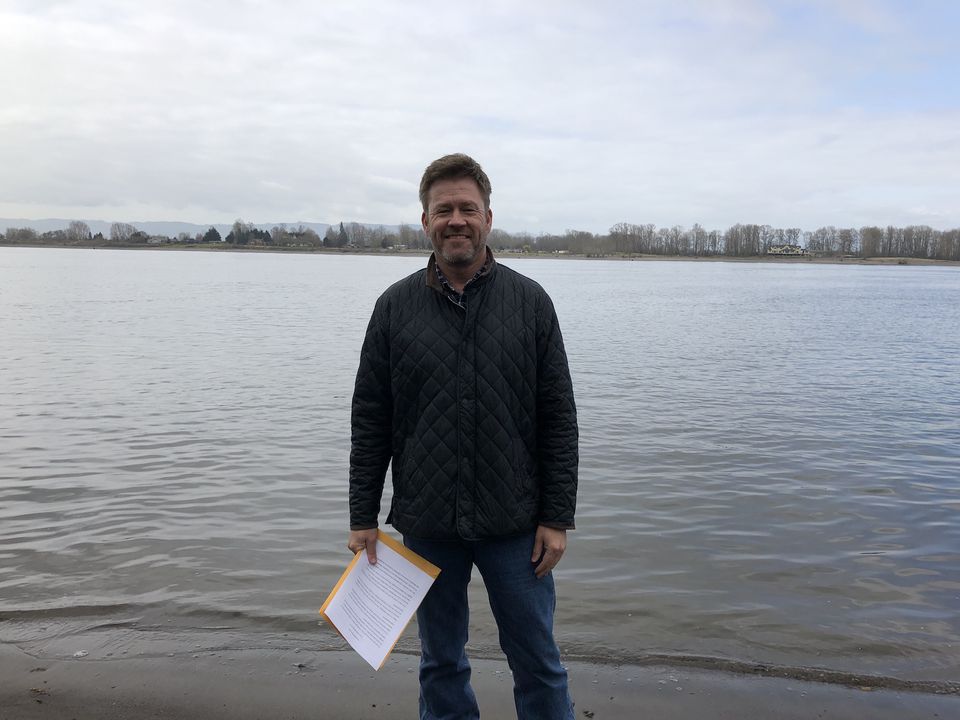Eric Ulis is running for Congress in Arizona – so he’s decided to introduce himself to voters while standing on a stretch of industrial shoreline in Vancouver.
That’s the power of D.B. Cooper.
Ulis, a 55-year-old former professional blackjack player, has dedicated much of the past decade to trying to solve the 1971 skyjacking of Northwest Orient Flight 305 out of Portland – the famous Cooper case. He believes his obsession with the skyjacking will help him start a political career.
Squinting into a movie camera, his boots squishing in the Columbia River’s muddy surf, Ulis tells future viewers that he’s standing on “the exact spot here in Washington state [where] a master criminal known as D.B. Cooper buried $200,000 in ransom after parachuting from a commercial airliner in mid-flight.”
That spot is on Tena Bar, the unassuming, privately held sandbar where in 1980 an 8-year-old boy found a cache of deteriorating $20 bills. Ulis doesn’t actually know that the unknown skyjacker, who bought his plane ticket under the name Dan Cooper, buried the ransom money here. Like almost everything about the D.B. Cooper case, it’s a theory.



